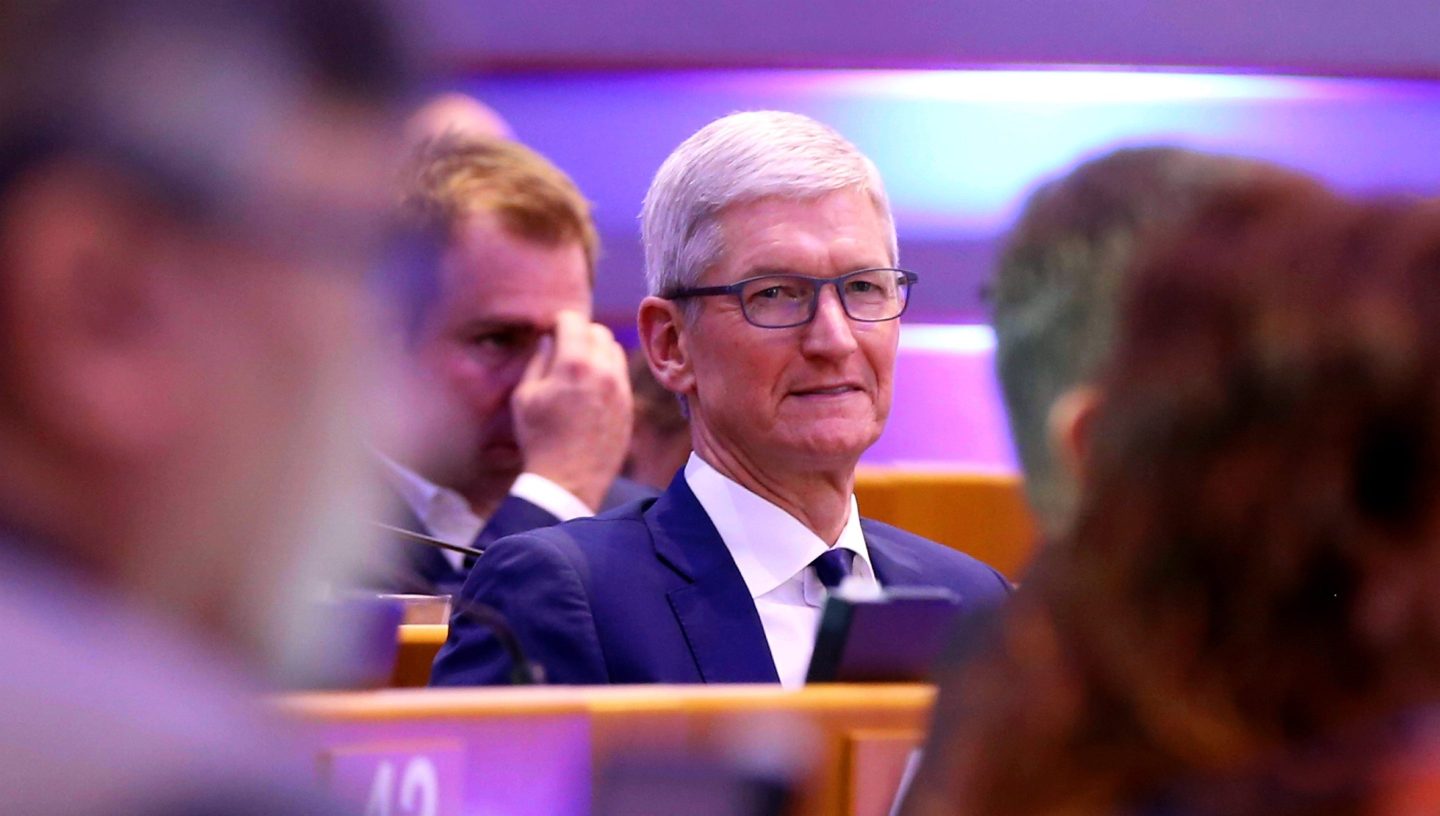Happy President’s Day!
The United States is celebrating Washington today (more precisely, George Washington’s birthday), but American business leaders would do well to pay attention to what’s happening in Brussels instead.
The European Commission, based in Brussels, is planning to hit another U.S. Big Tech company with an antitrust penalty, the Financial Times reported yesterday. Apple faces a €500 million ($540 million) fine for blocking its music streaming rivals, including the Swedish company Spotify, on its devices and services. For a company with nearly $100 billion in profit, the fine is far from life-threatening, but it’s nevertheless a warning sign.
U.S. companies are landing on the radar of the European commissioners with increasing regularity. Intel was fined $400 million last year; Google’s alleged “anticompetitive” practices have cost it more than $9 billion in European fines over the past decade; and Meta faced a $1.3 billion fine for mishandling user data last year. Qualcomm, Microsoft, and Amazon also received EU fines in recent years, ranging from just under $1 billion to several billion dollars.
For business leaders, there are two ways to respond to these developments. One is to ramp up their lobbying in Brussels in hopes of swaying rule- and decision-making in their favor. With billions of dollars at stake, it could be a worthwhile investment.
The other is to reflect on the bigger picture at play.
Brussels is unmistakably escalating scrutiny of foreign firms operating in the single market, and it’s clear which areas are in focus: antitrust, data privacy, environmental standards, and—following the EU AI Act—artificial intelligence.
These are areas that are relevant for any U.S. company, whether they have a large presence in the EU or not. Washington lawmakers, especially under the Biden administration, have also been stepping up investigations into antitrust practices, and new rules on data privacy, environmental standards, and AI are in force or are on their way.
All told, it will pay off for U.S. companies to comply with EU laws and regulations—not just to avoid fines in Europe, but to prevent similar investigations and penalties in the U.S. down the line. That’s already happening in environmental regulation: dozens—if not hundreds—of U.S. companies will comply with the EU Corporate Sustainability Reporting Directive in coming years, experts tell me, as the SEC mulls its own sustainability reporting rules.
There’s a Napoleonic-era saying in Belgium that “when it rains in Paris, it drizzles in Brussels,” meaning it’s worthwhile to pay attention to what happens in the French capital. For U.S. multinationals, a new adage may be true: “When it rains in Brussels, it drizzles in Washington.” In that case, best to buy an umbrella.
More news below.
Peter Vanham
peter.vanham@fortune.com
@petervanham
TOP NEWS
Boeing’s airshow no-show
When this week’s Singapore Airshow gets under way, no commercial Boeing jets will be on display as the plane maker reels from last month’s mid-flight blowout of a door plug. Boeing’s absence is expected to boost its main rival Airbus and Chinese upstart Comac, which will fly its homegrown plane for an international audience for the first time. CNBC
Dubai defies an office crash
The UAE's pandemic-era reforms—issuing more long-term ‘golden visas,’ permitting unmarried couples to live together, establishing a Monday to Friday work week—have accompanied a 30% jump in business licenses in Dubai. As a result, the city is bucking the commercial real estate downturn hitting other global hubs. Bloomberg
David Solomon strikes gold
Goldman Sachs paid CEO David Solomon $31 million—$2 million in salary; $29 million in bonus—in 2023, a 24% increase from the prior year, despite the investment bank reporting its weakest profits in four years. Other Wall Street CEOs got raises too: JPMorgan’s Jamie Dimon made $36 million last year, a 4% bump, though his bank notched record profits. Financial Times
AROUND THE WATERCOOLER
Did Wall Street kill the American Dream of homeownership? It depends on where you live by Alena Botros
Fast-food giants are feeling the burn from Middle East boycotts. Just look at McDonald’s, Starbucks, and Yum Brands’ earnings by Sunny Nagpaul
It’s more than just Dry January—a ‘moderation movement’ is making winners of brewers in the $22-billion non-alcoholic beer market by Prarthana Prakash
Stellantis CEO says Chinese EVs are ‘possibly the biggest risk’ facing his carmaker and Elon Musk’s Tesla by Steve Mollman
Walmart has been eating Target’s lunch and now the Minnesota giant is ditching its ‘Tar-jay’ rep for a ‘Hail Mary’ budget brand mostly priced under $10 by Sasha Rogelberg
It’s ‘not financial analysis, it is finger painting’: Billionaire investor rips new paper that tells investors to only buy stocks by Will Daniel
This edition of CEO Daily was curated by Claire Zillman.
This is the web version of CEO Daily, a newsletter of must-read insights from Fortune CEO Alan Murray. Sign up to get it delivered free to your inbox.













